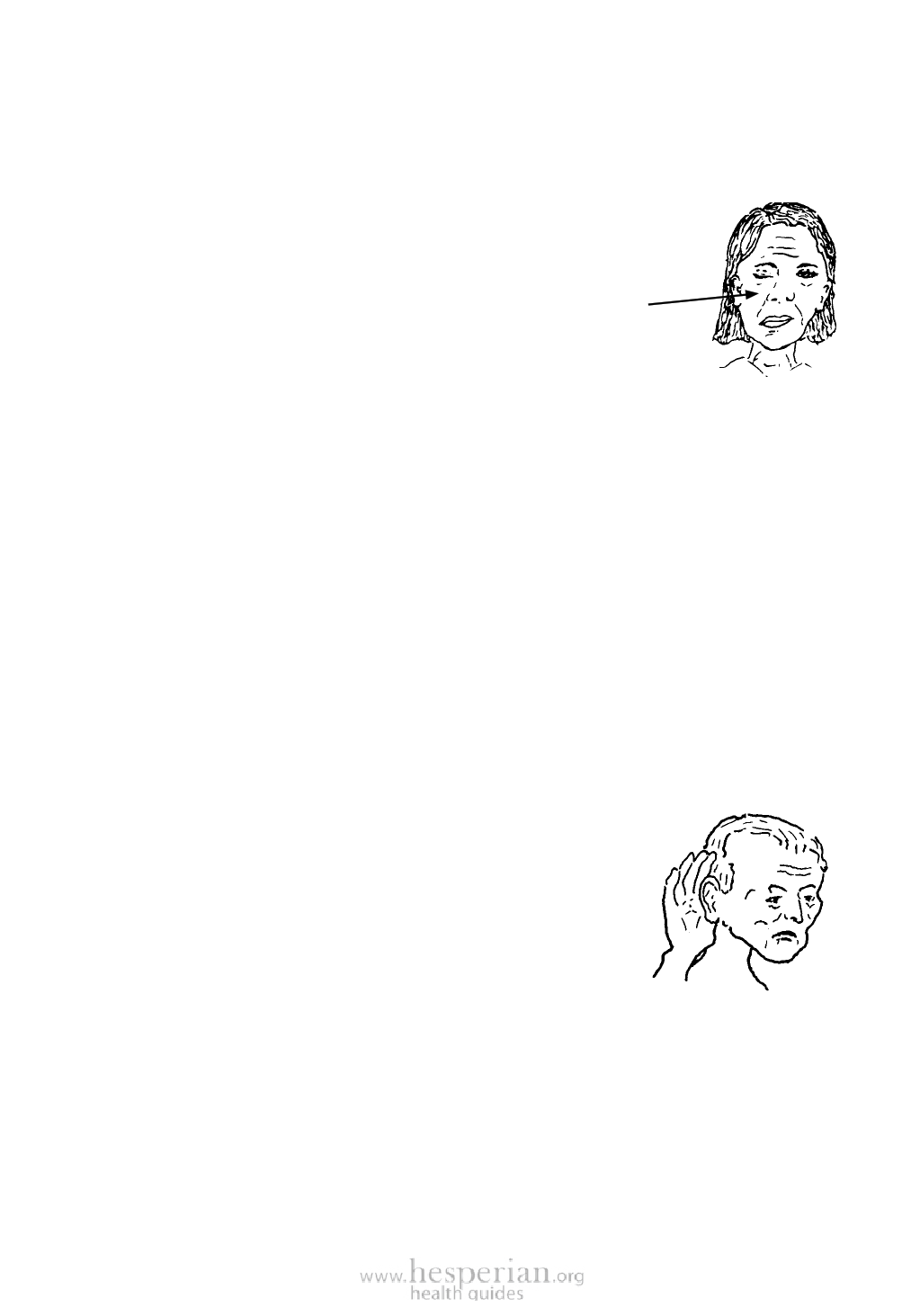
Where There Is No Doctor 2011 327
Stroke (Apoplexy, Cerebro-Vascular Accident, CVA)
In older people stroke or cerebro-vascular accident (CVA) commonly results from
a blood clot or from bleeding inside the brain. The word stroke is used because
this condition often strikes without warning. The person may suddenly fall down,
unconscious. Her face is often reddish, her breathing hoarse
and noisy, her pulse strong and slow. She may remain in a coma
(unconscious) for hours or days.
If she lives, she may have trouble speaking, seeing, or
thinking, or one side of her face and body may be paralyzed.
In minor strokes, some of these same problems may result
without loss of consciousness. The difficulties caused by
stroke sometimes get better with time.
Treatment:
Put the person in bed with her head a little higher than her feet. If she is
unconscious, roll her head back and to one side so her saliva (or vomit) runs out
of her mouth, rather than into her lungs. While she is unconscious, give no food,
drink, or medicines by mouth (see the Unconscious Person, p. 78). If possible, seek
medical help.
After the stroke, if the person remains partly paralyzed, help her to walk with a
cane and to use her good hand to care for herself. She should avoid heavy exercise
and anger.
Prevention: See the page before this one.
Note: If a younger or middle aged person suddenly develops paralysis on one side
of his face, with no other signs of stroke, this is probably a temporary paralysis
of the face nerve (Bell’s Palsy). It will usually go away by itself in a few weeks or
months. The cause is usually not known. No treatment is needed but hot soaks
may help. If one eye does not close all the way, bandage it shut at night to prevent
damage from dryness.
Deafness
Deafness that comes on gradually without pain or other
symptoms occurs most often in men over 40. It is usually
incurable, though a hearing aid may help. Sometimes
deafness results from ear infections (see p. 309), a head
injury, or a plug of dry wax. For information on how to
remove ear wax, see p. 405.
DEAFNESS WITH RINGING OF THE EARS AND DIZZINESS
If an older person loses hearing in one or both ears—occasionally with severe
dizziness—and hears a loud ‘ringing’ or buzzing, he probably has Ménière’s
disease. He may also feel nauseous, or vomit, and may sweat a lot. He should take
an antihistamine, such as dimenhydrinate (Dramamine, p. 386) and go to bed until
the signs go away. He should have no salt in his food. If he does not get better soon,
or if the problem returns, he should seek medical advice.